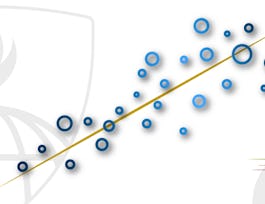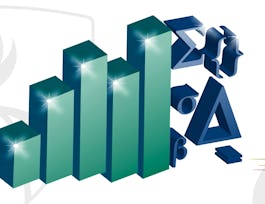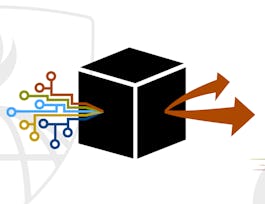This course focuses on the concepts and tools behind reporting modern data analyses in a reproducible manner. Reproducible research is the idea that data analyses, and more generally, scientific claims, are published with their data and software code so that others may verify the findings and build upon them. The need for reproducibility is increasing dramatically as data analyses become more complex, involving larger datasets and more sophisticated computations. Reproducibility allows for people to focus on the actual content of a data analysis, rather than on superficial details reported in a written summary. In addition, reproducibility makes an analysis more useful to others because the data and code that actually conducted the analysis are available. This course will focus on literate statistical analysis tools which allow one to publish data analyses in a single document that allows others to easily execute the same analysis to obtain the same results.


Reproducible Research
This course is part of multiple programs.
Taught in English
Some content may not be translated



Instructors: Roger D. Peng, PhD
103,519 already enrolled
Included with 
Course
(4,154 reviews)
93%
What you'll learn
Organize data analysis to help make it more reproducible
Write up a reproducible data analysis using knitr
Determine the reproducibility of analysis project
Publish reproducible web documents using Markdown
Skills you'll gain
Details to know

Add to your LinkedIn profile
2 quizzes
Course
(4,154 reviews)
93%
See how employees at top companies are mastering in-demand skills

Build your subject-matter expertise
- Learn new concepts from industry experts
- Gain a foundational understanding of a subject or tool
- Develop job-relevant skills with hands-on projects
- Earn a shareable career certificate


Earn a career certificate
Add this credential to your LinkedIn profile, resume, or CV
Share it on social media and in your performance review

There are 4 modules in this course
This week will cover the basic ideas of reproducible research since they may be unfamiliar to some of you. We also cover structuring and organizing a data analysis to help make it more reproducible. I recommend that you watch the videos in the order that they are listed on the web page, but watching the videos out of order isn't going to ruin the story.
What's included
9 videos4 readings1 quiz
This week we cover some of the core tools for developing reproducible documents. We cover the literate programming tool knitr and show how to integrate it with Markdown to publish reproducible web documents. We also introduce the first peer assessment which will require you to write up a reproducible data analysis using knitr.
What's included
9 videos1 quiz1 peer review
This week covers what one could call a basic check list for ensuring that a data analysis is reproducible. While it's not absolutely sufficient to follow the check list, it provides a necessary minimum standard that would be applicable to almost any area of analysis.
What's included
10 videos
This week there are two case studies involving the importance of reproducibility in science for you to watch.
What's included
5 videos1 reading1 peer review
Instructors

Offered by
Recommended if you're interested in Data Analysis

Johns Hopkins University

Johns Hopkins University

Johns Hopkins University

Johns Hopkins University
Why people choose Coursera for their career




Learner reviews
Showing 3 of 4154
4,154 reviews
- 5 stars
68.63%
- 4 stars
22.96%
- 3 stars
5.70%
- 2 stars
1.63%
- 1 star
1.05%
New to Data Analysis? Start here.

Open new doors with Coursera Plus
Unlimited access to 7,000+ world-class courses, hands-on projects, and job-ready certificate programs - all included in your subscription
Advance your career with an online degree
Earn a degree from world-class universities - 100% online
Join over 3,400 global companies that choose Coursera for Business
Upskill your employees to excel in the digital economy
Frequently asked questions
Access to lectures and assignments depends on your type of enrollment. If you take a course in audit mode, you will be able to see most course materials for free. To access graded assignments and to earn a Certificate, you will need to purchase the Certificate experience, during or after your audit. If you don't see the audit option:
The course may not offer an audit option. You can try a Free Trial instead, or apply for Financial Aid.
The course may offer 'Full Course, No Certificate' instead. This option lets you see all course materials, submit required assessments, and get a final grade. This also means that you will not be able to purchase a Certificate experience.
When you enroll in the course, you get access to all of the courses in the Specialization, and you earn a certificate when you complete the work. Your electronic Certificate will be added to your Accomplishments page - from there, you can print your Certificate or add it to your LinkedIn profile. If you only want to read and view the course content, you can audit the course for free.
If you subscribed, you get a 7-day free trial during which you can cancel at no penalty. After that, we don’t give refunds, but you can cancel your subscription at any time. See our full refund policy.

